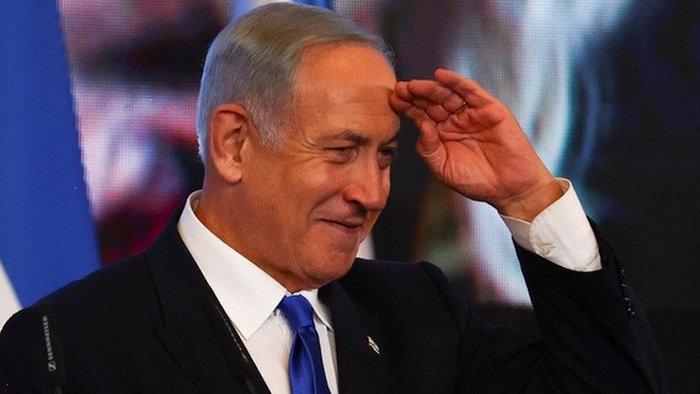Explainer: Israel, annexation and the West Bank
- Published
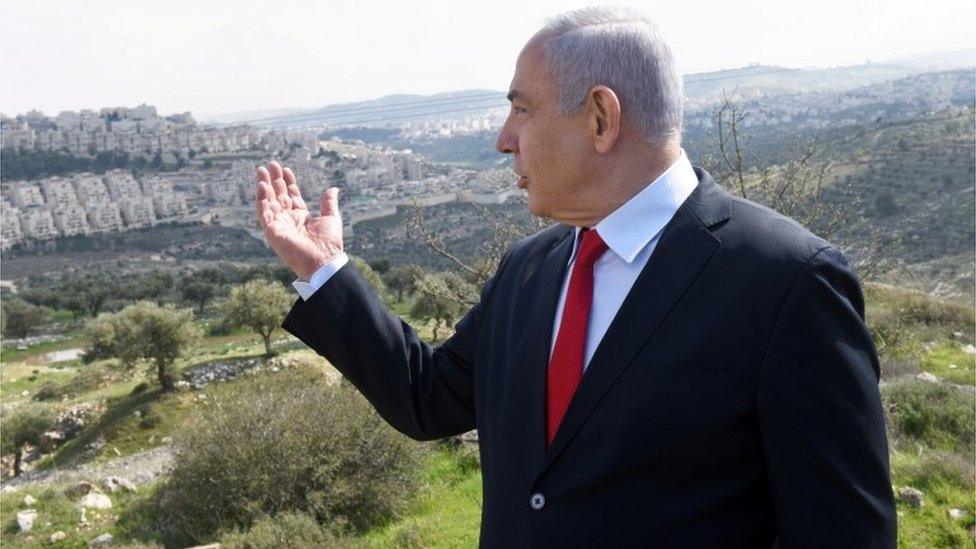
Benjamin Netanyahu has long championed Jewish settlements in the occupied West Bank
Israeli Prime Minister Benjamin Netanyahu says he is planning to effectively annex parts of the occupied West Bank in what would be a major - and highly controversial - act.
What is the West Bank?
It is a chunk of land located - as the name suggests - on the west bank of the River Jordan and bounded by Israel to the north, west and south. To its east lies Jordan.
The West Bank has been occupied by Israel since the 1967 Middle East war, but decades of difficult on-off talks between Israel and the Palestinians - both of whom assert rights there - have left its final status unresolved.


Between 2.1 million and 3 million (sources vary) Palestinian Arabs live in the West Bank under both limited self-rule and Israeli military rule.
The West Bank (excluding East Jerusalem) is also home to some 430,000 Israeli Jews who live in 132 settlements (and 124 smaller "outposts") built under Israel's occupation.
The vast majority of the international community considers the settlements illegal under international law, though Israel and the US under the Trump administration dispute this interpretation.
What is "annexation" and why does it matter here?
Annexation is the term applied when a state unilaterally proclaims its sovereignty over other territory. It is forbidden by international law. A recent example was Russia's annexation of Ukraine's Crimea peninsula in 2014.
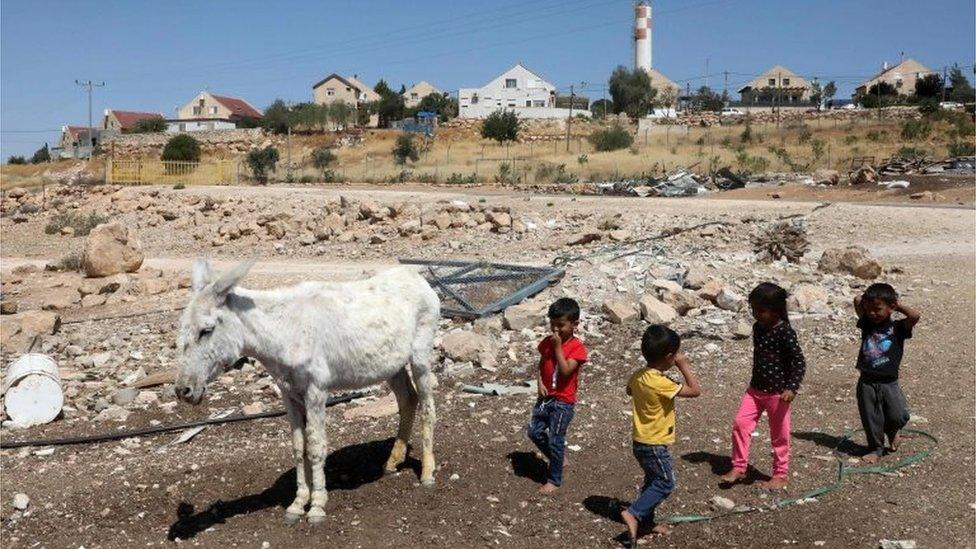
Reports suggest Israeli sovereignty would not be applied to Palestinians living in annexed areas
Mr Netanyahu has said the plan is "not annexation", although it involves applying Israeli sovereignty to the parts of the West Bank which contain Jewish settlements, as well as most of a swathe of land along the West Bank's boundary with Jordan, known as the Jordan Valley.
The move could result in some 4.5% of Palestinians in the West Bank living in enclaves within annexed territory, external. Mr Netanyahu has said Israeli sovereignty will not be applied to Palestinians in the Jordan Valley, and reports say the same exclusion will extend to Palestinians in other annexed parts of the West Bank.
Palestinian President Abbas says Mr Trump's "conspiracy deal won't pass"
The areas earmarked for annexation (the precise contours of which are being mapped by Israel and the US) may comprise about 30% of the West Bank, according to reports. Mr Netanyahu may initially act to annex just the settlements, which could amount to only 3% of the West Bank. The remaining 27% may have to wait until the boundaries are agreed with Washington.
However, the Palestinians seek the whole of the West Bank - to which they claim an historical right - for a future independent state, along with the Gaza Strip. Any annexation by Israel, they argue, would leave Palestinian areas fragmented and the Palestinian people with considerably less land for a country of their own.
If it's so controversial, why does Israel want to do it?
Israel claims historical and religious rights to the West Bank as the ancestral land of the Jewish people. It also says its presence there - especially in the Jordan Valley - is strategically vital for its self-defence.
It says settlements are not an obstacle to peace and that they would remain part of Israel under any peace deal with the Palestinians, whether they are annexed now or not.
Mr Netanyahu has long championed the settlements and through annexation wants to remove any doubt as to their fate, something which strongly appeals to his political base.
Why is this being talked about now?
Until recently, Mr Netanyahu would have faced solid opposition among the international community to such a move.
However, Donald Trump's Israeli-Palestinian peace plan, unveiled in January, allows for Israel to "incorporate" all the settlements - something no previous US administration had countenanced.
It is possible that Mr Netanyahu wants to get it done before the US presidential election in November in case Mr Trump's rival Joe Biden - who opposes annexation - is elected and reverses US policy.
An agreement which returned Mr Netanyahu to office as head of a national unity government in May set 1 July as the date from which the annexation process could be initiated.
What would change with annexation?
Assuming it happens (Israel and the US are still deliberating exactly when and how), the settlements and surrounding areas will become permanent parts of Israel (at least, from Israel's position). Reversal would require the support of a large majority of Israeli MPs, something which is very unlikely.
In practice, Israeli laws already apply to settlers, though not to Palestinians, who are subject only to Israeli military orders and Palestinian laws, so there would be little noticeable change in that respect.
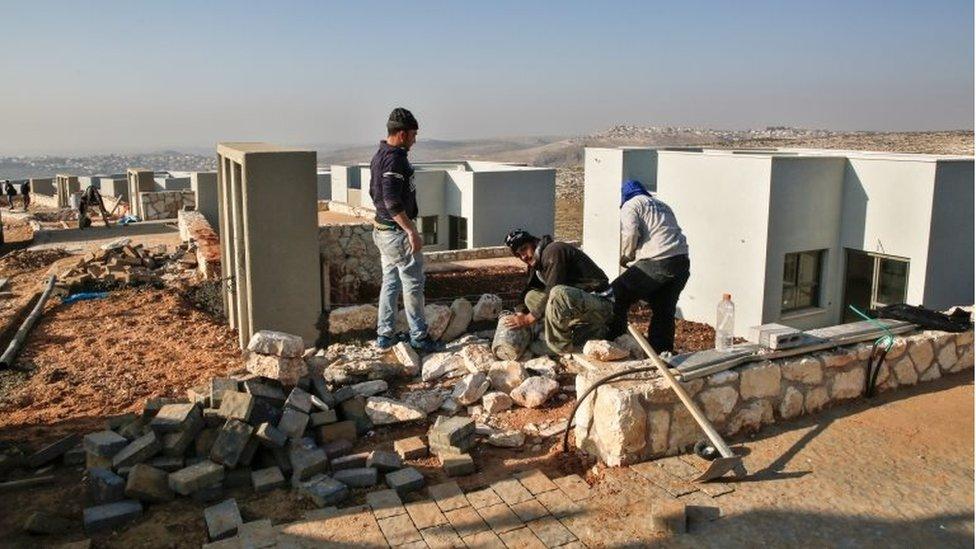
Construction in settlements could become easier if they officially become part of Israel
One of the most significant differences annexation would likely make is in settlement construction - long one of the thorniest issues between Israel and the Palestinians.
Currently, building and zoning in the West Bank requires the approval of Israel's defence minister and prime minister, and can take months or years. Following annexation, it would become a local matter and consequently easier for Israel to build there.
Beyond the annexed areas, the Israeli military will continue to exercise overall authority - something Palestinians say has deprived generations of their basic civil rights.
What is the global response to Israel's plan?
By and large, Israel has been warned by friend and foe alike not to go ahead with annexation. There are fears that such a move will put peace between Israel and the Palestinians even further out of reach.
The Palestinians are calling for international pressure to thwart Mr Netanyahu's plans, and their prime minister has said they could declare their own independent state on almost all of the West Bank if Israel annexes land there.

The issue of settlements has long been a source of friction between Israelis and Palestinians
The UN's Middle East envoy has warned that Israeli annexation and Palestinian counter-steps "would dramatically shift local dynamics and most likely trigger conflict and instability in the occupied West Bank and Gaza Strip, external". However, the US is likely to block any attempts to pass resolutions at the UN Security Council condemning Israel.
Jordan, one of only two Arab states to have signed peace treaties with Israel, has said it would be forced to review its relations with Israel if annexation goes ahead. But while the Arab world has sharply criticised Israel's plans, declarations of solidarity with the Palestinians may be as far as Arab states - especially those in the Gulf that have unofficial relations with Israel - will go.
The EU - Israel's biggest trading partner - says it will use diplomatic means to "discourage" Israel from carrying out its plans. Although some member states have called for tougher action, including possible sanctions, there appears little support for such a move at the moment.
- Published29 January 2020
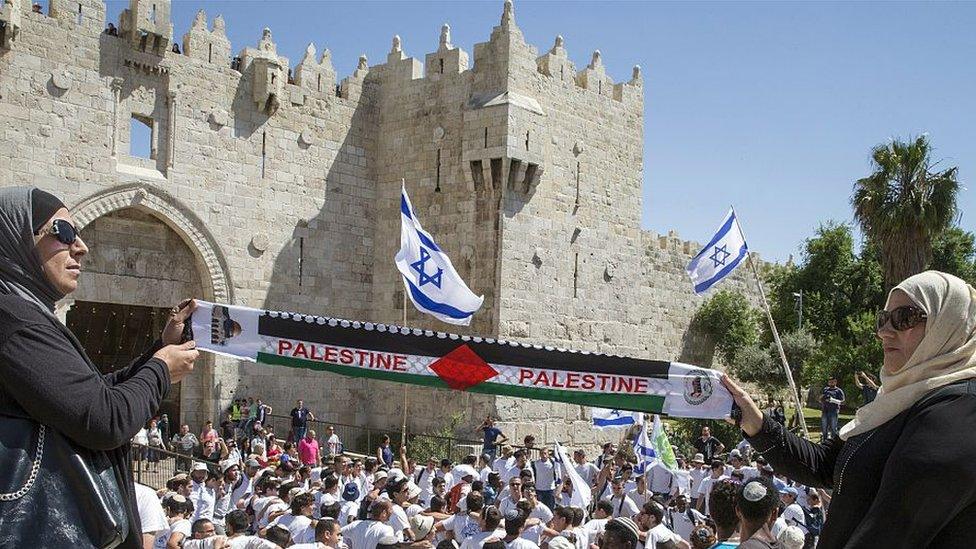
- Published28 January 2020
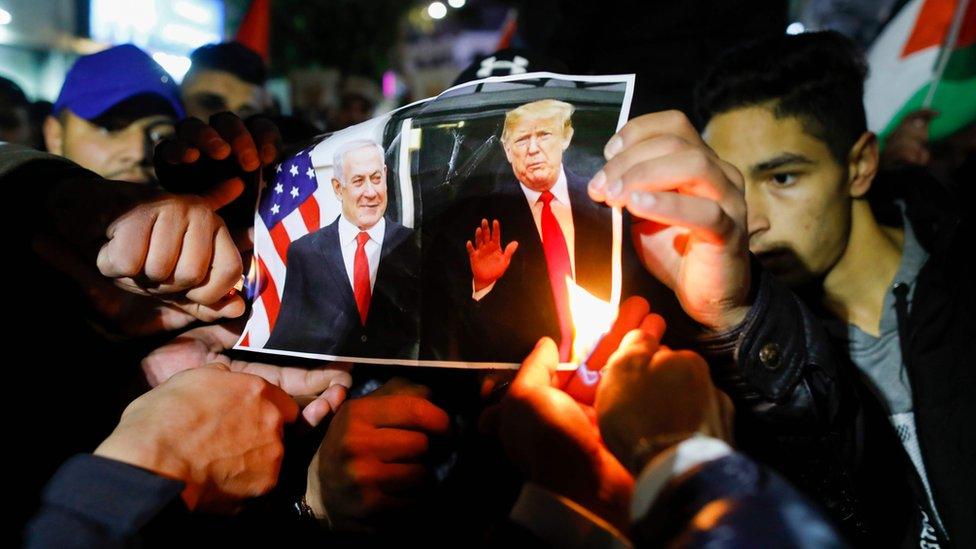
- Published29 January 2020

- Published28 January 2020
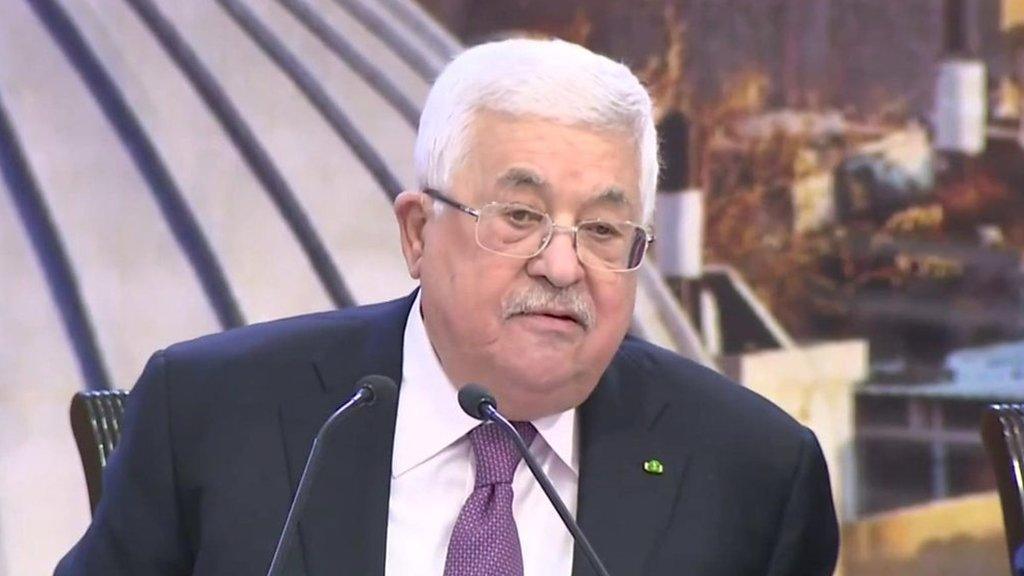
- Published21 November 2024
